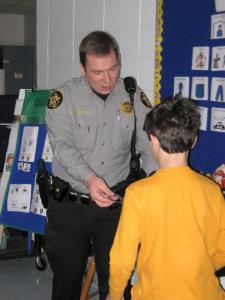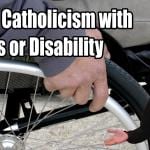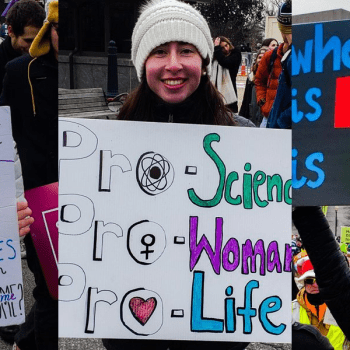In Salt Lake City, a 13-year-old autistic boy had a mental breakdown. The mom called 911 to help, but when police showed up they shot him. This emphasizes a problem with how police are trained to deal with autistics and others with disabilities. I will cover the incident, note the training issues that are known then provide a short moral analysis.
The Incident

CNN reported:
A 13-year-old boy was seriously injured after being shot by a police officer in Salt Lake City on Friday night, according to his mother.
Golda Barton said that her son Linden Cameron, who has Asperger syndrome, experienced a “mental breakdown” earlier in the day. It had been her first day back at work in nearly a year, and Linden was having trouble coping, she confirmed to CNN in an email.
Barton also confirmed she called the police and asked for a crisis intervention team to help her manage the situation and get her son treatment.
“I said, ‘Look, he’s unarmed. He doesn’t have anything. He just gets mad and he starts yelling and screaming,'” Barton told… KUTV about her call to police. “He’s a kid he’s trying to get attention. He doesn’t know how to regulate.”When police arrived, Barton said her son ran away. She told KUTV that she heard someone yell “get down on the ground” three times, followed by several gunshots.
“Why didn’t they tase him? Why didn’t they shoot him with a rubber bullet?” Barton told the station. “He’s a small child. Why don’t you just tackle him? You are big police officers with massive amounts of resources.”
Another report noted that the mother had informed the police he was unarmed and wondered how two grown men could not have subdued a 1-year-old even with a weapon by tackling him rather than shooting him.
The Problem of Training
The issue often goes back to a lack of training on mental health issues or developmental disorders by police officers. I don’t expect them to have a full psych degree but given that a large part of their encounters are with people with such issues, why not train them to understand these issues so they can properly approach them?
Psychology Today notes:
A 2012 study conducted by researchers at Drexel University measured how common it was for youth with ASD to be stopped and questioned by police or arrested. They found that by age 21, 20 percent of youth with ASD had been stopped by police, and almost 5 percent had been arrested.
It also talks about the causes:
When considering why encounters with police may be more dangerous for those with ASD compared to the general population, experts point to multiple factors. One factor is features of ASD can look similar to what individuals in law enforcement would consider “suspicious behavior” (e.g. lack of eye contact, reduced or repetitive speech, or repetitive motor movements). […]
Another reason why encounters with law enforcement can be dangerous for those on the spectrum is lack of autism-specific training. In 2008, New Jersey passed a statute requiring training for first responders in how to interact with those with disabilities. Unfortunately, a 2017 study of first responders in New Jersey found that 23 percent of first responders said their agency had not provided training in how to recognize and interact with individuals with ASD. Of respondents who did receive training, almost half (46 percent) felt that the training was either only “somewhat effective” or “not effective.”
Taken together, these results paint a troubling picture, as they suggest that even in a state which requires this type of training for first responders, 23 percent are not receiving this training at all, and almost half of those who do receive training do not experience it as being effective.
The evident conclusion is to better train police both formally, and when encountering someone on the spectrum. If we autistics represent 2% of the population and are more likely to have encounters with police, training to be able to handle what is something in the range of 1/20 of their encounters should be important.
Spectrum News reached similar conclusions. They went more in-depth talking about specific training programs.
Of the 18 large U.S. police departments that responded to Spectrum’s queries — including some in Florida and New Jersey —15 say they offer some form of autism-specific training, but these programs vary considerably. For instance, the New York City Police Department, which employs more than 36,000 uniformed officers, says every in-service officer receives training each year to help them recognize autism traits. In Harris County, Texas — which includes the city of Houston — all 2,249 sworn officers are required to attend a one- to three-hour presentation on signs of autism. The training also includes response strategies: Be patient, speak calmly and don’t touch the person or stop their repetitive motions unless it’s necessary for safety reasons. The representatives of three departments in New York, Georgia and Arizona told Spectrum these tactics are woven into basic training or broader crisis-intervention courses. […]
Training for autism is particularly complicated because of the condition’s heterogeneity. “We can’t teach police, ‘Well, because you interacted or saw this video about this one person with this presentation of autism, now you know autism and you’d be able to spot it anywhere,’” says Yona Lunsky, professor of psychiatry at the University of Toronto. Lunsky led the Canadian study linking aggression and police contact in people with autism. She says researchers need to continue to study these interactions and encourage police departments to be vigilant about training.
There is a lot more over there.
Moral Issues
There are two moral issues here. One is discrimination and the other is innocent until proven guilty or reasonable use of force.
As Christians, we should be against all forms of discrimination. We can initially think of discrimination just as treating people differently based on what type of person they are. This is not always treating people all the same. For example, I assume a different understanding of money from a toddler and an adult. It would be good if everyone knew how to deal with conditions like autism. Nonetheless, police have a special duty to be able to recognize and adapt to different conditions. If they don’t recognize, they easily assume things like lacking eye contact are suspicious rather than just autistic, which is discrimination.
On the second issue, I think there is an issue of easy misinterpretation of autistic actions that can lead police to presume guilt or use excessive force. These are both unethical as they go against human dignity.
Hopefully, we can keep educating the police so such problems are overcome.
Note: Please support me on Patreon so I can write more about autism and Catholicism.












